Target Audience
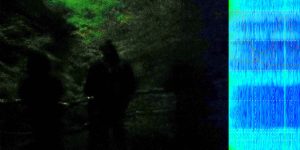
Calvaria – Participatory Walk
Vitalij Červiakov (LT)
Heart rate, blood pressure, temperature, blood oxygen level - all those things we are measuring and recording with portable and simple designed devices and sharing that information for analysis and storing to contemporary or future big data wealthiest. How are different processes of our body and mind changing during walking?
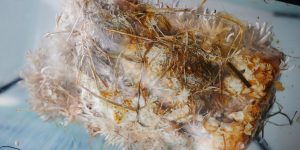
Microorganisms and their Hosts
Mindaugas Gapševičius (DE/LT)
The video Microorganisms and their Hosts proposes to reconsider the ecology of a human while questioning the impact of the microbiome, researching self-healing strategies, and experiencing the artwork in parallel to the changing environmental conditions. How can one experience their microbiome? Is there any dependence between what we eat, how we behave, and what we think?
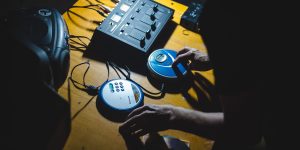
Artist Talk: How the brain works?
Marek Chołoniewski (PL), Chris Cutler (UK), Piotr Madej (PL), Artur Lis (PL)
Folded Maps of Time performance backstage
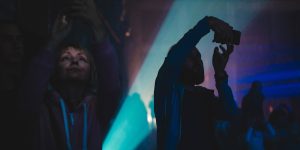
Folded Maps of Time
Marek Chołoniewski (PL), Chris Cutler (UK), Piotr Madej (PL), Artur Lis (PL)
Folded Maps of Time (FoMaTi) is an immersive audio-visual performance that integrates biosensoric electromagnetic systems (MC) and object-oriented electrified percussion (CC).
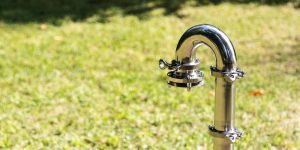
Above the Below
Mathieu Zurstrassen (BE)
_ /bəˈloʊ/ is an exterior sound installation, featuring a pipe emitting an audio file emerging from the ground. The audio file is a lecture from the book *How to Analyze People on Sight*, written in 1921 by Elsie Lincoln Benedict and Ralph Paine Benedict.
AI x MUSIC FESTIVAL Opening Ceremony
The Grid (US/EU), Gray Area (US), Codame (US), ZERO1 (US), MUTEK.SF (US), EUNIC Silicon Valley (US), EUNIC Washington DC (US), EUNIC New York (US), Ars Electronica AIxMusic Festival (AT), STARTS, European Commission (EU), Center for Humane Technology (US), Salesforce (US)
Your guide through the AIxMUSIC FESTIVAL Opening Ceremony with Livestream.
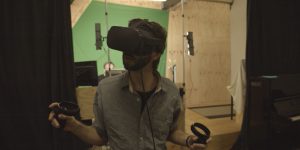
Fertile Methodologies
Tactical Space Lab (AU)
The Tactical Space Lab is a research initiative focusing on the intersection of art and technology. We are committed to expanding the diversity of stories and voices represented through new technologies via collaborative projects and educational programs across all ages, with the aim of ‘demystifying’ VR, not just for artists, but for the wider community.
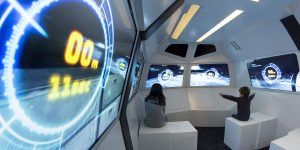
Visit the Moon with an astrophysicist!
Cité de l’espace (FR)
Come visit the Moon with French astrophysicist and co-discoverer of ice on the Moon, Sylvestre Maurice! He will guide you through the “Moon exhibition” in Cité de l’espace, the space museum in Toulouse, France. These 4 videos were made as part of the “children’s science conference” that invited pupils to imagine their schools on the Moon. Through the eyes of an astrophysicist who has dedicated his life to solar system exploration, click and discover step by step the immersive "Moon exhibition".
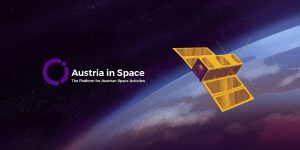
Austria in Space Garden
Austria in Space (AT)
Austria in Space is more than just another website. It is THE place for Space in Austria. At the Ars Electronica Festival, the Austria in Space initiative will present some of their program highlights and show how relevant Austrian innovations are to the global space exploration sector.
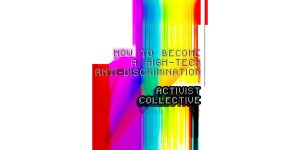
Nushin Isabelle Yazdani und Internet Teapot (Karla Zavala und Adriaan Odendaal): [d/r]econstructing AI - dreams of visionary fiction and zine-making
How to Become a High-Tech-Anti-Discrimination Activist Collective
With this workshop we investigate the structures behind algorithmic decision making systems, discuss why their design is normative, and how AI systems reinforce structural discrimination. We embark on a speculative journey and discuss how to design to create a more just world. Which artists inspire us? Which values are important to us? We want to collect our thoughts and creative outputs in a zine.

LAB ON STAGE (Adriana Torres Topaga, Martyna Lorenc and Andrea Maria Handler): Phantom Data in our bodies and imagination
How to Become a High-Tech-Anti-Discrimination Activist Collective
This workshop undertakes a performing arts’ approach. Our departure is the embodiment of imagination and perceptual processes. With somatic exercises and performative games, we notice the data flowing in from our bodies: sensation, image, emotion or memory. Imagination has its own training dataset - therefore a specific priming/bias/imprint. We look for practices of becoming aware of HOW we imagine things and what escapes our field of attention.

Astrid Mager und Hong Phuc Dang: How to create your own AI device with SUSI.AI - An Open Source Platform for Conversational Web
How to Become a High-Tech Anti-Discrimination Activist Collective
The workshop introduces SUSI components like SUSI’s technology stack, its wiki-like skill editor and hardware prototype; participants work together to create a simple bot, develop new skills and test them. A reflection on data bias and algorithmic discrimination invites to collectively think about creating non-discriminatory digital technologies.

Doris Allhutter: “When I encountered discriminating IT-systems and did not want to take it anymore” - deconstructing affective entanglements in society-technology relations
How to Become a High-Tech Anti-Discrimination Activist Collective
This workshop uses the deconstructive method of mind scripting to understand the grip that even technologies that we reject may have on us. Using our own memories as an experimental resource we will explore how discrimination and privilege materialize in our practices. This aims at developing collective agency and activisms.

Safiya Umoja Noble: Algorithms of Oppression - How Search Engines Reinforce Racism
How to Become a High-Tech Anti-Discrimination Activist Collective
The landscape of information is rapidly shifting as new demands are increasing investment in digital technologies. Yet, critical scholars continue to demonstrate how many technologies are shaped by and infused with values that are not impartial, disembodied, or lacking positionality. Technologies hold racial, gender, and class politics. In this talk, Dr. Safiya Noble will discuss her recent book, Algorithms of Oppression, and the impact of technology on the public.

Lisa Nakamura: Estranging Digital Racial Terrorism After COVID
How to Become a High-Tech Anti-Discrimination Activist Collective
This talk argues that COVID-19 forced an accelerated migration to digital networks that exposed new audiences to traumatically racist digital events as well as new openings for critique and resistance.

How to Become a High-Tech Anti-Discrimination Activist Collective
IFG-LIT (AT)
New technologies have penetrated all aspects of our lives and promise a wide range of improvements and efficiencies. Contrary to general perception, though, the algorithms on which these technologies are based are neither neutral nor do they treat everyone equally.
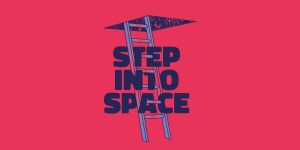
Space Art Tour – Educators Edition
Ars Electronica (AT), Ciência Viva (PT), Leiden University (NL)
Check out Space Art at the Ars Electronica Festival and get introduced to various tools for teachers and educators!
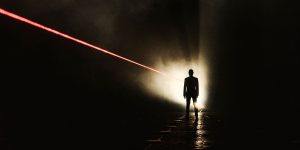
The Experimenta Garden - A Drone Opera (2015 – 2020)
Experimenta (AU)
The Experimenta Garden features the multi-platform work A Drone Opera (2015 – 2020)
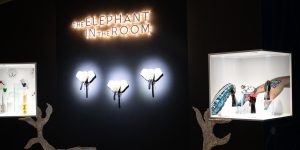
The Elephant in the Room
Melanie Baumgartner (AT), Florian Hartmann (AT), David Preninger (AT)
Nature-inspired robotics is collaborative, adaptable and ecological. With biodegradable and edible materials, new technologies that interact sustainably with humans and nature emerge. Imitations of an elephant's trunk embody such soft nature-inspired robots and interact quite naturally with visitors in Kepler's Gardens.
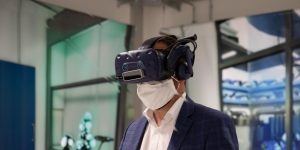
Robots Talking To Me
LIT Robopsychology Lab, Johannes Kepler University (AT)
How should robots communicate with people? What voice makes AI assistants sound trustworthy? Do we even have to listen to robots or should we always be in command ourselves? Under the title *Robots Talking to Me*, the *LIT Robopsychology Lab* presents four installations that give tangible expression to questions of human-machine relationships and invite participation.


